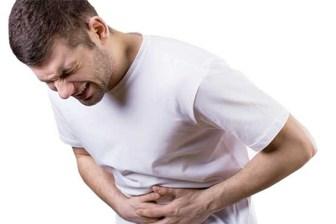Diagnosing Crohn’s disease can indeed be difficult at start, since the symptoms of crohns disease are very similar to Ulcerative Colitis or IBS (Irritable Bowel Syndrome). But once it is confirmed, Chrohn’s disease treatment plan can be very streamlined. One must know all the precautions and prevention techniques to treat Crohn’s.
As all know, Crohn’s is a disorder which involves an immune reaction against the intestinal tract. Here, the intestines are inflamed making it difficult to digest and absorb key nutrients from food. Hence, a well balanced diet for Crohn’s is a must as patients are bound to be nutritionally deficient due to poor absorption as well as poor appetite.
Deficiencies noted
With Crohn’s many suffer from minor to severe diarrhoea, wherein, there is loss of nutrients from the body. The patient can suffer from anemia having low levels of iron, b12 and folic acid. They also struggle to maintain the normal body weight which can affect children largely.
Diet during Crohn
There are hundreds of options available online for Crohn’s diet, but, to be very specific there is no such one diet for Crohn’s. We need to make note of the food that triggers the symptoms and we need to avoid that food product from the diet. When you follow this you notice the gas, bloating and
abdominal cramping symptoms taken care of. When you know your diet intake is low than normal or you are nutritionally deficient, you need to have a high-protein diet, where you need to have regular meals with 2-3 snacks per day to ensure you have that protein intake you need.
As per the Colorectal Surgeon or Nutritionists advice you might also need some vitamin rich foods that will replenish the lost ones in cases of severe diarrhoea.
Diet Must have During Crohn
- ● Oatmeal
- ● Vegetable soups
- ● Almond milk
- ● Poultry
- ● Eggs
- ● Avocado
- ● Banana, Papaya, Mangoes and all tropical fruits.
- ● White rice
Very importantly, one must make note that not all can digest the foods mentioned. Some bodies can create triggers for even the foods that can be included. So one must be aware of the food triggers and restrict that from the diet.
Exclusions Must have During Crohn
- ● Milk and milk products (Dairy)
- ● Carbonated beverages
- ● Coffee, tea, chocolate
- ● Alcohol
- ● Nuts and seeds
- ● High fibre food
- ● Butter and oils
- ● Spicy food products
- ● Red meat and pork
Most of the times a low residue diet is suggested, which will reduce abdominal cramps, bloating and gas. This diet will reduce the residue of the stool and gives relief to the patient. For this you need to avoid corn, bran, vegetables and all raw fruits.
A follow up is always a must for Crohn’s disease with your doctor or Nutritionist to ensure the disorder is in control.

